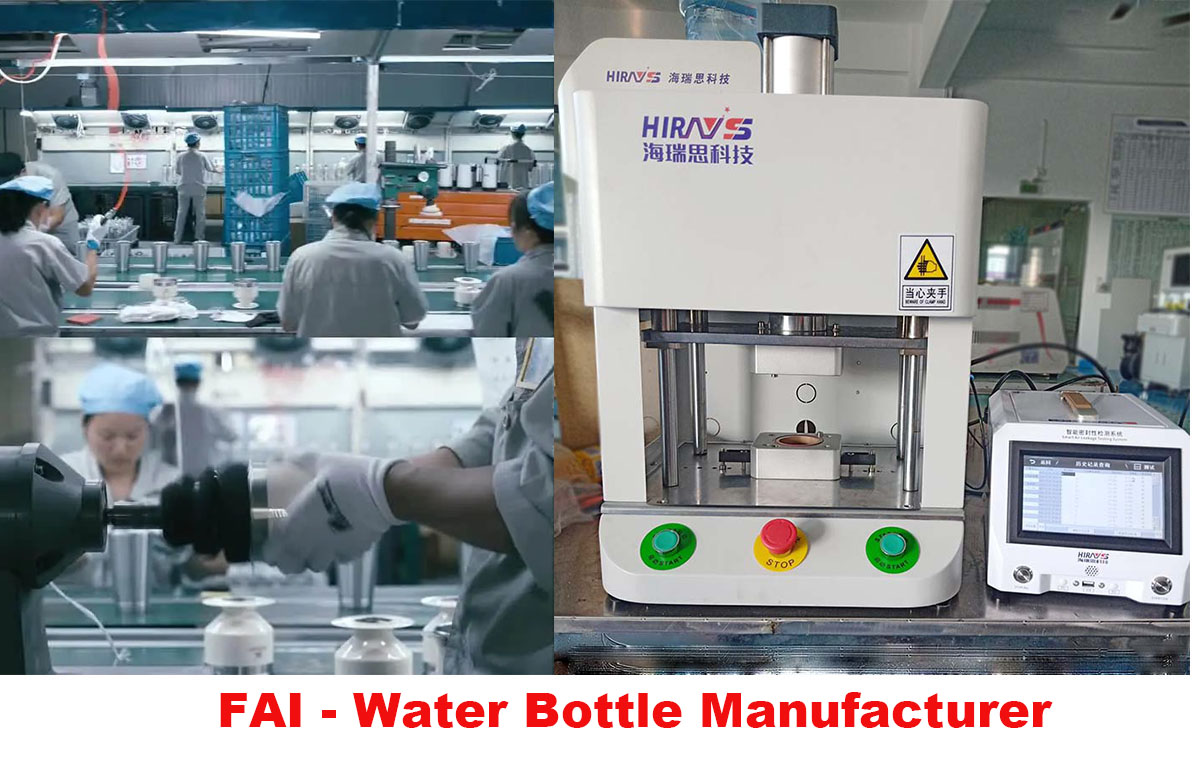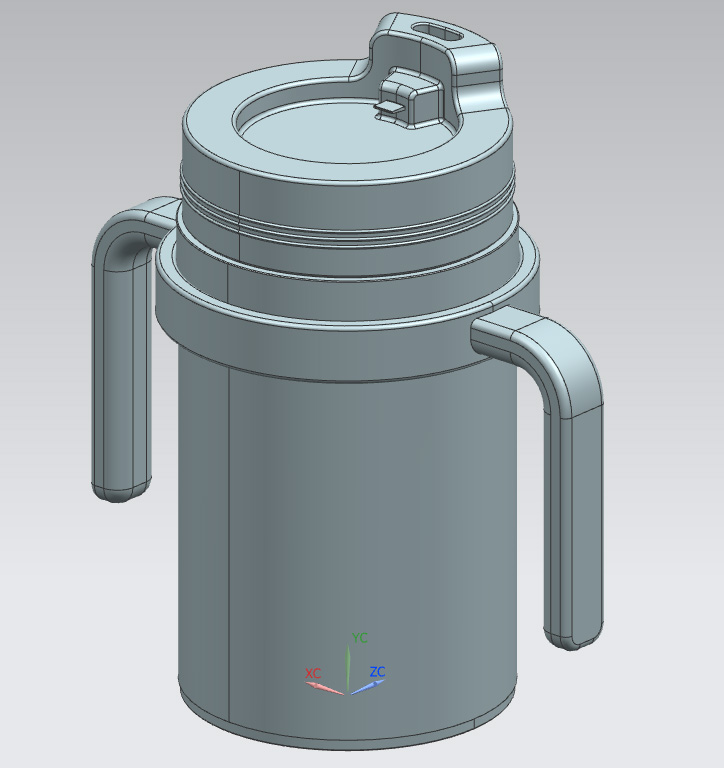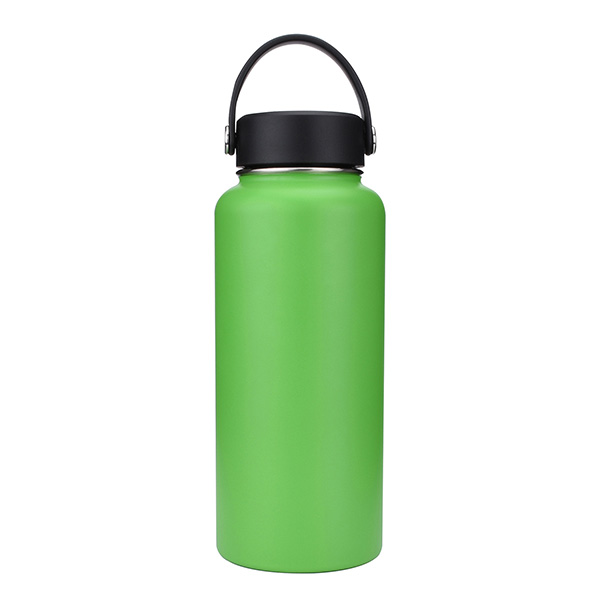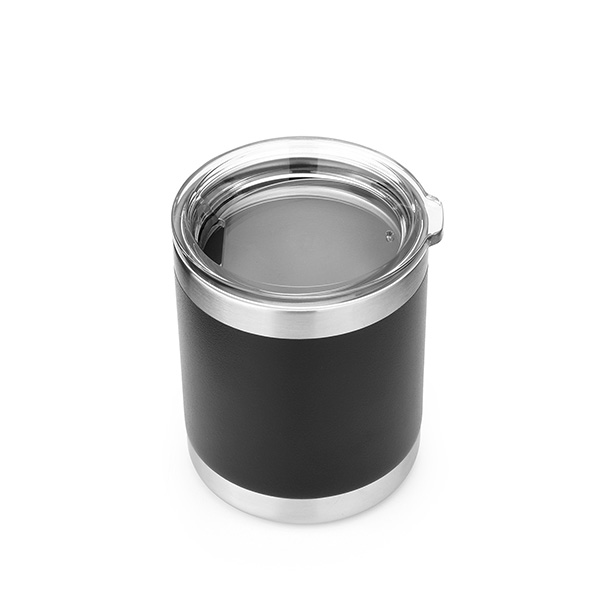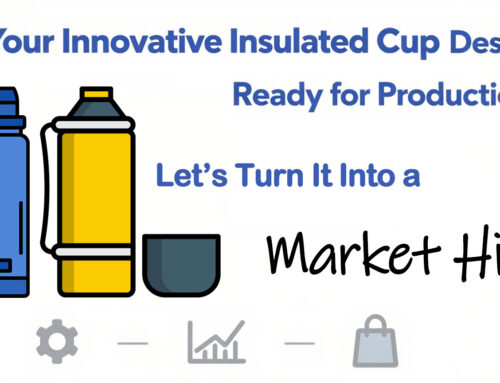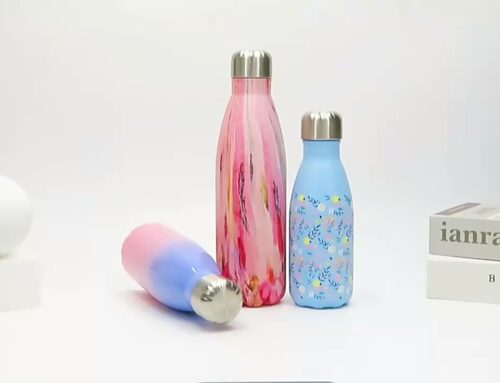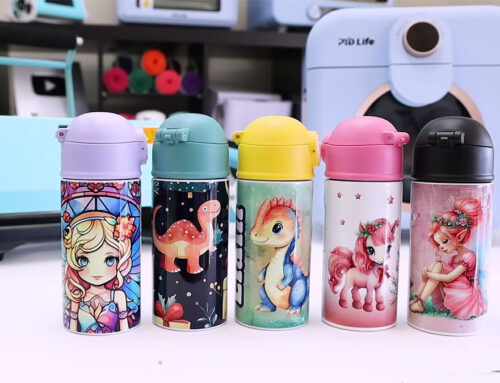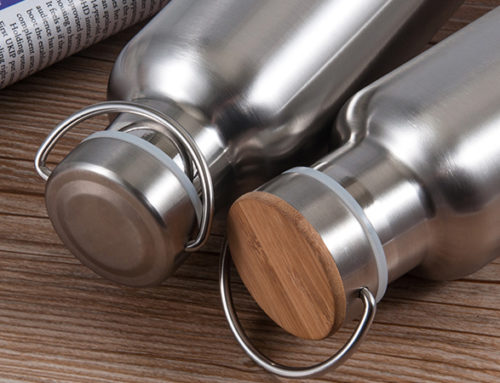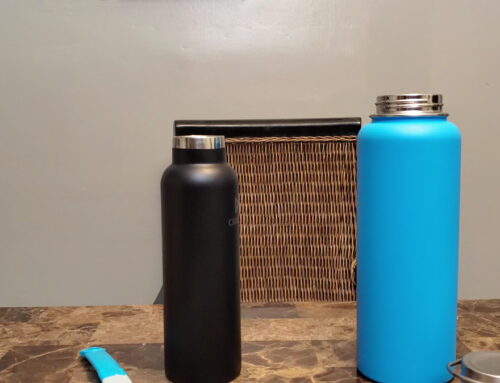Contents
- 1. What is First Article Inspection (FAI)?
- 2. Why is FAI important for water bottle development?
- 3. What does the FAI process involve?
- 4. Why FAI is often conducted by customers in water bottle projects?
- 5. When does FAI happen as for water bottles manufacturer?
- 6. How does KingStar approach FAI in water bottle manufacturing?
- 7. What are the benefits of KingStar’s FAI process?
- 8. Conclusion
Imagine embarking on a journey to create the ultimate water bottle / tumbler / vacuum flask — that not only keeps your drink at the perfect temperature but also embodies durability, style and innovation. At the heart of this quest lies a crucial milestone called First Article Inspection (FAI), a checkpoint every aspiring water bottle must pass through. This isn’t just any quality control point, it’s where ideas are put to the test and dreams face the tough demands of reality.
FAI is at the forefront of developing new products, especially in the realm of water bottles, where there’s no room for error. This process isn’t just a routine step; it’s a proactive measure, a thorough examination to ensure that every aspect of design and manufacturing meets the highest industry standards and customer expectations. Through FAI, we don’t just inspect; we envision the water bottle’s journey from blueprint to satisfied customers’ hands, making sure that every sip from our water bottle represents quality and innovation.
1. What is First Article Inspection (FAI)?
First Article Inspection (FAI) is a crucial quality control procedure in the manufacturing industry, especially when developing new products like water bottles. This process acts as an initial check to ensure that the first production run of a water cup meets all specified design and manufacturing requirements. The significance of FAI lies not only in confirming the product’s compliance with strict standards but also in its role as a safeguard against potential production issues, ensuring that every aspect of the water bottle aligns with industry norms and customer expectations.
The importance of FAI in the manufacturing industry cannot be overstated. It serves as a way to prevent problems by catching and fixing errors early on, which helps minimize the risk of expensive fixes later in production. This is especially crucial when making consumer goods like water bottles, where safety, durability and performance directly impact how well the water bottle sells. By thoroughly inspecting the first article produced, manufacturers can ensure that the production process is set up correctly to consistently deliver high-quality water bottles without any defects.
In a word, FAI builds confidence among stakeholders, from suppliers to end consumers, in the water bottle’s quality and reliability. It demonstrates a commitment to excellence and compliance, which is vital for establishing trust and loyalty in competitive markets.
2. Why Is FAI important for water bottle development?
The FAI (First Article Inspection) is super important in the development of water cups, you know? It’s like a big deal for specialized stuff like insulated containers, vacuum tumblers and thermos bottles. This inspection process is all about making sure the drink wares are top-notch and meet all the requirements. And let me tell you, it’s absolutely crucial in this competitive market where quality matters so much.
Ensuring water bottle quality and specification adherence
FAI makes sure that every aspect of a thermos bottle, from how well it keeps drinks hot or cold to how durable the materials are, meets the predefined specifications and quality standards. For example, if we’re making an insulated water bottle that claims to keep liquids hot for 12 hours and cold for 24 hours, FAI would test the first one made to check if it actually lives up to those temperature retention claims. This involves testing the temperature at specific times to make sure it performs as expected. By doing this, we can confidently say our stainless steel water bottle works well based on real data collected during the FAI process.
Identifying and addressing water bottle issues early
The FAI process is designed to catch and fix production issues as early as possible. For example, if an FAI shows that a batch of vacuum insulated stainless steel water bottles has problems with the vacuum seal, it could mean there’s an issue in the production line like improper sealing techniques or faulty machinery. Finding these problems early on helps us fix them before they become bigger, saving time and resources. A study published in the Journal of Quality in Maintenance Engineering found that implementing strict FAI processes can significantly reduce production defects. They even mentioned a case where defect rates dropped by over 30% in just one year after implementing early FAIs.
FAI also plays a crucial role in the development of thermos drinkwares, where it’s super important for the inner and outer shell to line up perfectly to keep your drinks hot or cold. An FAI can catch any alignment issues and make sure we fix them right away by adjusting our manufacturing process or assembly techniques. This way, we stop any defective items from being made and make sure our final products meet the high standards that consumers expect.
In conclusion, FAI is absolutely essential in the development of wholesale custom water bottles/ bulk thermos cups / travel mugs / water jugs / dog bowls / food containers / lunch boxes / vacuum vessels / can coolers. It not only guarantees that products meet or even exceed quality and performance standards but also helps identify and solve manufacturing issues before they become widespread problems. While specific data on defect rates or cost savings may vary among different manufacturers, the consensus in the industry is crystal clear: implementing a thorough FAI process is a tried-and-true method that leads to higher quality water bottles, less waste and happier customers.
3. What does the FAI process involve?
The First Article Inspection (FAI) process is a systematic and thorough evaluation designed to make sure that a newly developed product, like a water bottle, meets all the specified design and manufacturing requirements before it goes into full-scale production. This process is super important for maintaining quality control and identifying any potential issues that could affect the performance or safety of the product. Interestingly, in water bottle projects, customers themselves often carry out the FAI process for several reasons.
Key Steps in Conducting an FAI
- Documentation review: The process starts by thoroughly going through all the design documents, like drawings, specifications, and material requirements, to make sure we fully understand the inspection criteria and that the stainless steel water bottle has been developed according to the agreed standards.
- First article production: The first article, which is made using the same materials, tools, and processes as the mass water bottle items, ensures that the inspection results accurately represent what will be produced on the production line.
- Detailed inspection: The first article goes through a thorough inspection where we measure and compare its dimensions, material properties, and any critical performance characteristics against the design specifications. This can include checking the size, analyzing the materials used, and testing how the water bottle
- Non-conformance identification: The specified requirements must be followed exactly, and any deviations will be recorded as non-conformances. This step is crucial for identifying any parts of the product or process that don’t meet the required standards.
- Corrective actions and verification: The identified non-conformances are used as a basis for implementing corrective actions to address any issues. The first article might be re-inspected, or a new water bottle could be produced and inspected to make sure that the issues have been resolved.
- Documentation and approval: The results of the FAI, including any non-conformances and corrective actions, are documented in an FAI report. This report is reviewed and, if satisfactory, approved by the relevant stakeholders, signifying that the water bottles are ready for mass production.
4. Why FAI is often conducted by customers in water bottle projects?
In the case of water bottle projects, the FAI is often conducted by the customers themselves for several reasons:
- Customization and brand standards: Water bottle projects often involve high levels of customization and strict brand standards that require the customer’s intimate knowledge of the brand and its market to ensure the product meets their specific needs and expectations.
- Quality assurance: By conducting the FAI themselves, customers can directly oversee the quality control process, ensuring that the water bottle aligns with their quality expectations and regulatory requirements.
- Partnership and collaboration: The FAI allows customers to closely work with manufacturers, which helps build a partnership approach to thermos drinkware This collaboration can result in better communication, faster issue resolution, and a deeper understanding of production capabilities and limitations.
- Market responsiveness: Direct involvement in the FAI process enables customers to make rapid decisions and adjustments, which is crucial for responding to market demands and maintaining a competitive edge.
The FAI process is an integral part of water bottle development, ensuring that new tumblers or cups, meet the highest quality standards before entering mass production. By involving themselves in the FAI process, customers in water bottle projects can ensure that the final product aligns with their expectations and requirements, thereby safeguarding their brand’s reputation and customer satisfaction. Click and read more: Water Bottle Tumbler Cup Development: 6-Step Helps Your Custom Design Drinkware Get to Market Easier
5. When does FAI happen as for water bottles manufacturer?
The timing of FAI is critical for ensuring that any potential issues are identified and addressed early in the manufacturing process. This early intervention prevents costly errors and delays later on, ensuring that the production of water bottles can proceed smoothly, efficiently, and to the satisfaction of both the manufacturer and the customer.
- After prototype approval: Once the design of the water bottle has been finalized and a prototype has been developed and approved, the next step is to produce the first article. This is essentially the first unit manufactured using the same materials, processes, and equipment that will be used for mass production.
- Before mass production begins: FAI is conducted before the production line is fully operational for mass production. This timing is crucial because it allows manufacturers to verify that the manufacturing process can produce the water bottle to the exact specifications and quality standards required without committing to the full production run.
- During the pilot production run: Sometimes, FAI is part of a pilot production run, which is basically a trial manufacturing process to test everything out. This pilot run is meant to closely mimic mass production conditions but on a smaller scale so that we can thoroughly evaluate and inspect the first articles produced.
- After any significant design or process changes: If there are any significant changes to the water bottle’s design, materials, or the manufacturing process after initial production has started, an additional FAI may be required. This ensures that the changes have not adversely affected the water bottle’s quality or compliance with specifications.

Click and read more about Custom Options: Custom Bottle Tumbler Decorating, Custom Logos of Water Bottles, Custom Water bottle Packaging
6. How does KingStar approach FAI in water bottle manufacturing?
KingStar, a reliable custom water bottle manufacturer with its extensive experience in manufacturing insulated container, vacuum vessel and thermos drinkware, provides one-stop ODM/OEM water bottle manufacturing service. This reputation is built not only on our ability to produce high-quality stainless steel water bottles, tumblers, and custom mugs but also on its innovative approach to First Article Inspection (FAI). Our FAI process is a cornerstone of its manufacturing operations, ensuring that every product not only meets but exceeds customer expectations in terms of quality, durability, and performance.
7. What are the benefits of KingStar’s FAI process?
Our FAI process is meticulously designed to make sure the product quality is top-notch right from the start. This includes thoroughly evaluating the initial production units to ensure w meet all design specifications and quality standards. The advantages of this approach are numerous:
- Precision and quality assurance: KingStar’s FAI process involves detailed inspections and tests to measure the precision and quality of every aspect of the water bottle or tumbler, from material composition to thermal insulation performance. This ensures that each drinkware not only meets the specified requirements but also provides the superior performance that our customers expect.
- Early detection and resolution of issues: By identifying potential manufacturing or design issues at the initial stage, KingStar can implement corrective actions early in the production process. This proactive approach prevents minor issues from becoming systemic problems, saving time and resources, and ensuring that the final products are defect-free.
- Continuous improvement and innovation: The insights gained from the FAI process feed into our continuous improvement programs, driving innovation in product design and manufacturing processes. This commitment to innovation allows us to stay ahead of industry trends and meet evolving consumer demands.
8. Conclusion
The FAI process in water bottle projects is a crucial point where quality, precision, and customer satisfaction come together. By putting emphasis on involving customers, this process not only ensures that the final products meet the high standards expected in the market but also shows a commitment to excellence and putting customers at the center of product development. By empowering customers to take charge of the FAI process, manufacturers can guarantee that each water bottle produced truly reflects the customer’s vision and quality expectations. For more information for new water bottle project, please leave online message or send email to sales@waterbottle.tech!

